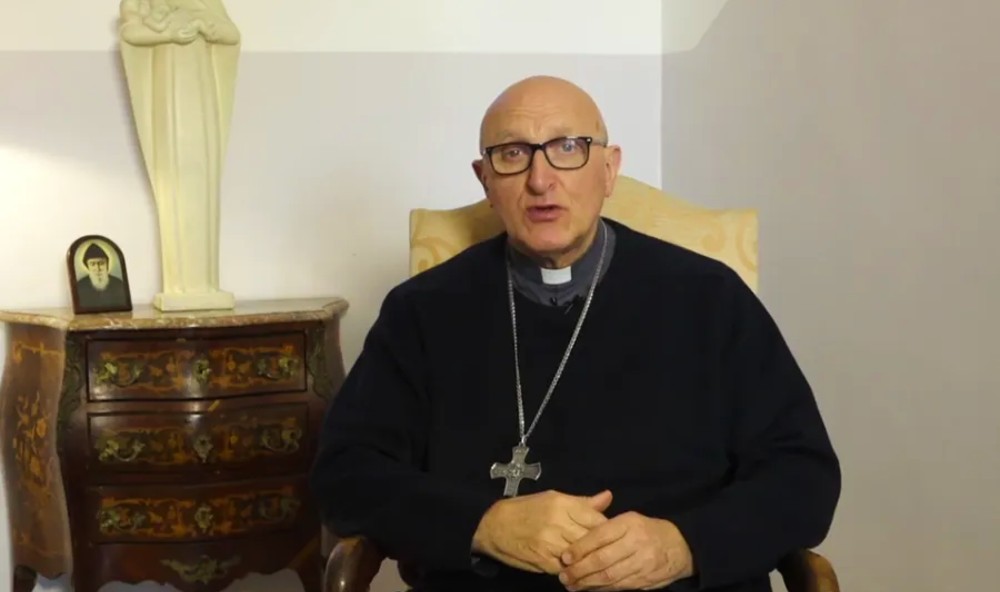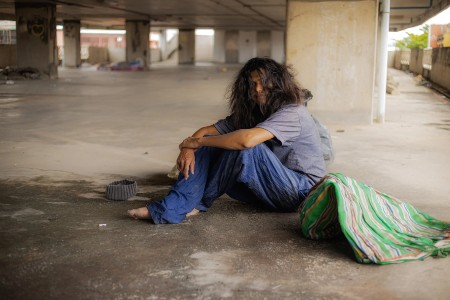We ask you, urgently: don’t scroll past this
Dear readers, Catholic Online was de-platformed by Shopify for our pro-life beliefs. They shut down our Catholic Online, Catholic Online School, Prayer Candles, and Catholic Online Learning Resources—essential faith tools serving over 1.4 million students and millions of families worldwide. Our founders, now in their 70's, just gave their entire life savings to protect this mission. But fewer than 2% of readers donate. If everyone gave just $5, the cost of a coffee, we could rebuild stronger and keep Catholic education free for all. Stand with us in faith. Thank you.Help Now >
Christian Copts of Egypt Claim Their Roots, Witness to the World
FREE Catholic Classes
As a former tour guide on Nile cruise boats and now a professor of religious studies at Santa Clara University in California, David Pinault is no stranger to the Middle East. He was there during the demonstrations in Tahrir Square in January 2011. He recently went back again and wrote an article, "Ready To Be Martyrs." It offers us a unique perspective from which all Christians can learn.
Highlights
Catholic Online (https://www.catholic.org)
9/13/2012 (1 decade ago)
Published in Middle East
Keywords: Christian, Persecution, Copt, Egypt, Culture, Libya, Islamist, American Embassy, Michael Terheyden
KNOXVILLE, TN (Catholic Online) - As a former tour guide on Nile cruise boats and now a professor of religious studies at Santa Clara University in California, David Pinault is no stranger to the Middle East. He was there during the demonstrations in Tahrir Square in January 2011. He recently went back again and wrote an article, "Ready To Be Martyrs." It offers us a unique perspective from which all Christians can learn.
According to his article, two things stood out for Pinault on his most recent trip to Egypt: the modern-day martyrdom of Christians in Egypt and the Egyptian heritage of the Coptic Christian community. He recalls his driver in Cairo, a Copt by the name of Sami, telling him about the persecution of the Copts by Islamists since the demonstrations in 2011. Islamists want an Islamist government with sharia law as its foundation. But sharia law discriminates against non-Muslims and more liberal-minded Muslims.
Sami said that it had not been as bad for the Copts when President Mubarak was in power because he had suppressed the Islamists. But since Mubarak was forced to step down, the Islamists have felt emboldened. Now, they are burning churches, inciting riots against the Copts and openly calling for the expulsion of Christians without fear. As a result, over 100,000 Copts are believed to have fled Egypt since Mubarak was ousted; but Sami insisted, "I'm staying. I'm not leaving my country."
Sami added, "We're ready to be martyrs. We're ready to be with Christ, to live with Christ. . . . Christ is testing us. I tell my friends to stay. Christ could end this suffering, this trial, at any time. How will you feel, I tell my friends, if you're in Canada instead of Egypt when Christ returns?" Pinault pondered Sami's statements as they passed by the burned-out ruins of the Institute of Egypt, and he felt something stir within him.
He recalled how the institute had been founded by the French after Napoleon Bonaparte invaded Egypt in 1798. Its archives contained many ancient maps, books and manuscripts. Then in 2011 when Egyptian soldiers stood on its roof and shot at the demonstrators in the square below, some demonstrators responded by fire bombing the building to shouts of "Allah is great" and "there is no god except Allah." Much of the priceless collection was destroyed. Kamal 'Arafah, an Egyptian poet and commentator, compared the destruction of the institute to the burning of the Library of Alexandria and the destruction of the learning centers in Baghdad by the Mongols.
But it was when they visited a section of the city called Old Cairo that the impact of Sami's words hit Pinault with full force. This is one of the oldest neighborhoods in Cairo and a center of Coptic culture. Pinault tells us that his favorite church is located here. It is called al-Kanisa al-Mu'allaqa, which means the Suspended Church. It was given this name because it is built on the remains of an ancient Roman fortress. During the liturgy, they still do the chants in the ancient Coptic language, which is descended from the pharaohs.
In the courtyard of the church, men were selling newspapers directed at a Coptic readership. One of the articles referenced the October 2011 Maspero incident in Cairo. The incident occurred when the military ran over dozens of people with armored military vehicles crushing them during a protest over the burning of Coptic churches. The headline referred to the murdered Copts as martyrs. The headline of another article read, "The blood of the martyrs cries out from the darkness, and the tears of the Copts will not dry. But our Lord is present." It was accompanied by photos of horrified women and a photo of our dead Lord and Savior.
The Maspero incident was absolutely horrifying. I have attached a video at the top of this article on Cynthia Farahat's testimony before the Human Rights Commission in the U.S. House of Representatives. It includes a chilling account of the incident at Maspero. Farahat's testimony helped me understand the depth of hostility that the Coptic Christian community faces in their own country, even from their government. It is shocking.
Pinault also mentioned another newspaper, the Theban Legion. It addresses contemporary religious and political issues which are of concern to the Copts. According to an article in this paper, besides the recent election results which brought the Islamists to power in Egypt, one of the main concerns among Copts, and some liberal Muslims, is the fear that the Islamists will destroy what is left of the Egyptian identity in their culture in their efforts to unite Arabs under a caliph who will rule based on sharia law.
The name for the Theban Legion newspaper, Pinault tells us, comes from "a revered third-century band of martyrs, an Egyptian military unit that refused to worship the gods of the Roman Empire and chose death rather than surrender its Christian identity." Taking inspiration from this brave group of Christian Egyptian martyrs, the Theban Legion rejects Arab identity over the more ancient pharaonic heritage. It also advocates support for the oppressed, giving Christian witness, nonviolent struggle, and the rebuilding of the Christian Coptic identity.
Pinault notes that symbols from ancient Egypt are now popping up at Coptic demonstrations. At a demonstration near Cairo's Coptic cathedral in the neighborhood of Abbasiya, some Copts wore pharaonic-style gowns ornamented with hieroglyphic symbols of eternal life and carried large crosses, thus making the connection between their Christian faith and their Egyptian heritage. And at a demonstration in Tahrir Square, Copts carried a giant obelisk replica, another ancient Egyptian symbol.
Symbolism, such as the gowns, ornamentation and obelisk that Pinault mentions, is one of the ways that Copts are responding to those who are calling for "Islamic government and the subordination of Copts or their expulsion from Egypt." Their message is clear, but just in case there is any doubt, Pinault's driver, Sami, put it this way, "We've been here forever. We're true Egyptians. We belong here." They are right. Sami is right. And history bears this out.
By the time Muslims invaded Egypt in the seventh century, most Egyptians were Christians. Tradition has it that the apostle Saint Mark formed a church in Alexandria, Egypt shortly after the ascension of Jesus. It is said that Christianity spread from Alexandria throughout Egypt within half a century. After the Muslim invasion, all native Egyptians were called Copts. Modern-day Copts have the distinction of being direct descendents of these ancient, pre-Islamic Christian people. Today, they make up about 10 percent of the population in modern Egypt, and they are the largest religious minority in the Middle East.
The Copts' heritage is part of who they are as Christians. Christianity is not an abstract religion. It transcends culture, time and place, but it is lived and given expression within history and culture. Christianity does not diminish culture. Rather, it enables culture to attain its full potential and beauty; and, at the same time, it has the power to unite people of different cultures. Based on their Egyptian heritage, the Copts are a living link to a past that stretches back to approximately 3100 BC. They are also one of the oldest Christian communities in the world, a community which has always existed at the geographic center of our faith. Thus, this link is important, and it must be preserved.
So Sami's words are important for all of us and should impact all Christians no less than they impacted Pinault. In a certain sense, then, Sami's question to his friends--how will they feel if they are in Canada instead of Egypt when Christ returns--also applies to us Christians in the West. We might ask ourselves how will we feel if we have squandered our heritage when Christ returns, for that is exactly what is happening in the West.
You may recall that European leaders refused to recognize their Christian heritage in the failed constitution intended to establish the European Union and in the Treaty of Lisbon which was ratified in 2009 in lieu of a constitution. In the United States, open persecution against Christians has begun. Under President Obama's leadership, his party has attempted to remove mention of God from its official platform; efforts have been made to narrowly define the meaning of religious freedom as mere worship; and the secular state has been firmly pitted against the Catholic Church.
Moreover, as I write this article on the 11th anniversary of 9-11, news reports inform us that U.S. embassies have been attacked in Egypt and Libya over a video that Islamists say insults the Prophet Mohammad. In Egypt, the embassy was stormed. The American flag was removed, burned, and replaced with a black flag similar to the flag of al Qaeda, the terrorists who attacked us on U.S. soil 11 years ago. In Libya, the embassy was fired upon and torched, and four Americans were killed. One of the dead included Ambassador Christopher Stevens. The Obama administration helped put Islamists (including al Qaeda) in power in Libya and possibly in Egypt.
But Sami's comments about being able to face Christ when he returns were not his only comments. He also said, "We're ready to be martyrs. We're ready to be with Christ, to live with Christ" Can we say the same? The word "martyr" is a Latin word. It means to give witness. Historically, Christians have considered a martyr to be someone who has given witness to the faith by their suffering and death. Being a martyr is the ultimate witness because we cannot give more than our life; it is all we have. Thus, to die for our faith is our complete and final proclamation of our faith.
There is also a lesser type of martyrdom which we all experience. It could be the many sacrifices--little deaths--we suffer when we put others before ourselves or when we stand up for that which is true, just and good. Like all of us, the Copts are called to this lesser martyrdom, but many Copts, and many Christians throughout the world today, have been called to give a complete and final proclamation of their faith. No doubt this witness is for the benefit of their Islamist persecutors and their Muslim neighbors; however, I imagine they are witnessing to us as well, that they are inspiring us to take courage and not to be afraid to defend our heritage.
This is especially true for American Christians. The great gift of our culture, and all of its blessings and power, that we have received comes with equally great responsibility. It is not to be squandered. It is to be nurtured and used for good. We are responsible to use our might not just for our needs, but for the needs of others, such as the needs of our persecuted Christian brothers and sisters in Egypt and throughout the world. If we take this responsibility seriously, we will undoubtedly suffer the lesser martyrdom. But if we are not willing to suffer a little now, how will we be able to face Christ when he returns?
-----
Michael Terheyden was born into a Catholic family, but that is not why he is a Catholic. He is a Catholic because he believes that truth is real, that it is beautiful and good, and that the fullness of truth is in the Catholic Church. However, he knows that God's grace operating throughout his life is the main reason he is a Catholic. He is greatly blessed to share his faith and his life with his beautiful wife, Dorothy. They have four grown children and three grandchildren.
---
'Help Give every Student and Teacher FREE resources for a world-class Moral Catholic Education'
Copyright 2021 - Distributed by Catholic Online
Join the Movement
When you sign up below, you don't just join an email list - you're joining an entire movement for Free world class Catholic education.
-

-
Mysteries of the Rosary
-
St. Faustina Kowalska
-
Litany of the Blessed Virgin Mary
-
Saint of the Day for Wednesday, Oct 4th, 2023
-
Popular Saints
-
St. Francis of Assisi
-
Bible
-
Female / Women Saints
-
7 Morning Prayers you need to get your day started with God
-
Litany of the Blessed Virgin Mary
Pope Francis Accepts Resignation of Bishop Dominique Rey of Frejus-Toulon
-

Bound by Betrayal: Katie's Struggle with Lust, Lies, and Redemption
-

John: A Story of Addiction, Hopelessness, and the Search for Redemption
-
Science vs. Faith: The Battle for Truth and Hope
-
Regenerative Agriculture: The Answer to America's Chemical-Laden Food Crisis
Daily Catholic
 Daily Readings for Wednesday, January 08, 2025
Daily Readings for Wednesday, January 08, 2025 St. Thorfinn: Saint of the Day for Wednesday, January 08, 2025
St. Thorfinn: Saint of the Day for Wednesday, January 08, 2025 Prayer for a Blessing on the New Year: Prayer of the Day for Tuesday, December 31, 2024
Prayer for a Blessing on the New Year: Prayer of the Day for Tuesday, December 31, 2024- Daily Readings for Tuesday, January 07, 2025
- St. Raymond of Pennafort: Saint of the Day for Tuesday, January 07, 2025
- St. Theresa of the Child Jesus: Prayer of the Day for Monday, December 30, 2024
![]()
Copyright 2024 Catholic Online. All materials contained on this site, whether written, audible or visual are the exclusive property of Catholic Online and are protected under U.S. and International copyright laws, © Copyright 2024 Catholic Online. Any unauthorized use, without prior written consent of Catholic Online is strictly forbidden and prohibited.
Catholic Online is a Project of Your Catholic Voice Foundation, a Not-for-Profit Corporation. Your Catholic Voice Foundation has been granted a recognition of tax exemption under Section 501(c)(3) of the Internal Revenue Code. Federal Tax Identification Number: 81-0596847. Your gift is tax-deductible as allowed by law.










 Daily Readings for Wednesday, January 08, 2025
Daily Readings for Wednesday, January 08, 2025 St. Thorfinn: Saint of the Day for Wednesday, January 08, 2025
St. Thorfinn: Saint of the Day for Wednesday, January 08, 2025 Prayer for a Blessing on the New Year: Prayer of the Day for Tuesday, December 31, 2024
Prayer for a Blessing on the New Year: Prayer of the Day for Tuesday, December 31, 2024


